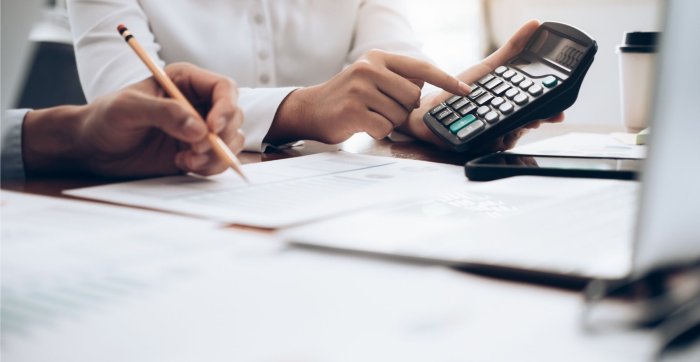
If you are running a business, most income received by the business is assessable for income tax purposes. The total gross amount is referred to as ‘assessable income’.
You need to report assessable income in your business tax return. That includes:
- Cash income and income from online transactions;
- Commissions and investment earnings;
- Recovered bad debts for which your business previously claimed a tax deduction;
- Most government payments;
- Capital gains and losses;
- Increases in the value of trading stock;
- Stock taken for personal use; and
- Payments from an insurance claim related to your business.
Also, make sure to check what income you can exclude – for example, some COVID-19 government support payments are not assessable if you meet the eligibility criteria.
Remember you can reduce your business’s taxable income by claiming business tax deductions, as long as:
- The expenses directly relate to earning your business’ assessable income;
- You claim only the business-use portion if the expense is for a mix of business and private use; and
- You have records to substantiate your claims.
Expenses may include:
- Motor vehicle and travel expenses;
- Items related to protecting staff from COVID-19;
- Employee superannuation contributions; and
- Payments you make to workers (including their wages) as long as you’ve complied with the Pay as you go (PAYG) withholding and reporting obligations for each payment.
Are you providing cars to employees? Learn more: Tax deduction for car expenses
How’s your record keeping?
The ATO has reminded businesses about the importance of keeping correct records. For one thing, good record-keeping makes things easier at tax time.
When it comes to record-keeping, there are 5 rules. You need to:
- Keep all records related to starting, running, changing, and selling or closing your business that are relevant to your tax and superannuation affairs;
- Store records safely to prevent damage and protect information from being changed (you must not change the relevant information in records);
- Keep most records for 5 years (for example, you need to keep records of losses for up to 5 years after you’ve fully claimed the loss);
- Be able to show the ATO your records if they ask for them; and
- Ensure your records are in English or easily converted to English.
Talk to our KMT tax adviser about what records to keep and how to keep them!
Using business stock for private purposes?
If you are a sole trader or a partner in a partnership and take goods from your business for your private use, make sure you accurately record this in your stock on hand.
Accessing your trading stock for private use is fine from a tax perspective, but you need to account for the stock correctly:
- Each time you use it (as you would if you sold it); and
- At the end of each income year.
If you do not adjust the actual cost of goods sold to reflect the goods you used for private consumption, you could be incorrectly claiming expenses you’re not entitled to.
A good plan is to set up regular reconciliation processes to help you keep track of each time you take stock for private use. Keep a record that shows:
- The date;
- A description of what was taken;
- The reason stock was taken; and
- The cost or market value of the item (excluding GST).
At the end of the income year, any goods taken for your own use should not be accounted for as stock on hand. Certain businesses can use the amounts that the ATO will accept as estimates of the value of goods taken from trading stock for private use.
The ATO recently published the accepted estimates for 2022–23: Schedule for the value of goods taken from trading stock for private use in the 2022-23 income year
Read also: Tax implications of Christmas party
Talk to our KMT tax adviser if you need assistance with your business tax!
This is general advice only and does not take into account your financial circumstances, needs and objectives. Before making any decision based on this document, you should assess your own circumstances or professional advice from your accountants at KMT Partners.


